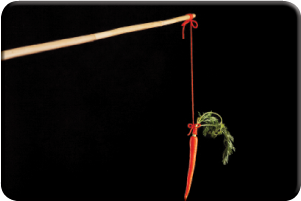 When someone wants to change something in their lives via their own behaviors (for example to lose weight through eating and exercise changes) why do you think they are not always successful?
When someone wants to change something in their lives via their own behaviors (for example to lose weight through eating and exercise changes) why do you think they are not always successful?
If someone decides she wants to change her diet, and she sees a nutritionist and gets all sorts of accurate information on what changes to make, why do you think she doesn’t always make those changes?
The fact is, the majority of people who go on regimented diet programs, end up weighing more than when they started. (Am Psychol. 2007 Apr;62(3):220-33.)
Research shows that just receiving information (such as what to eat and not to eat) has a low level of influence on someone’s actual behaviors.
Behavior change is its own science, with research to demonstrate methods, more in the realm of psychology than nutrition, that help you actually make the changes you set out to make, instead of spending money getting information you may well already have known and still not reaching your goals.
Scott has been discovering interesting things about behavior change for years and systematizes them into real forward movement for clients who are serious about making health behavior changes. Let him help you reach your goals.
Click image for more information



Almost everyone who goes on a regimented “diet” program weighs more in a year or two than when they started. This is because most people don’t take into account things we know about successful behavior change. For example, someone may know that he or she should make dramatic changes in diet to become or stay healthy. But intellectually knowing this and psychologically being able to stick to it are different things. Employing known strategies of behavior change is the key.
There is no getting around the fact that it is easier to make behavior change with support—friends making the same changes, a support group, a coach, trainer or other specialist, even just being in the right environment (working out in a gym as opposed to your living room.) If there are lifestyle changes you think you’d benefit from but just haven’t quite made stick, consider trying at least one of these strategies to make it more likely.
My “5% Rule”: Let’s say you want to switch to eating whole wheat pasta instead of typical white pasta. Maybe your first experience with whole wheat wasn’t great- maybe it seemed “weird” or tasted funny. So, next time, make your regular pasta and add in just a few pieces of whole wheat pasta. Do this a few times. Then add in a few more strands. Continue this process and in few weeks to a few months you will probably be eating all whole wheat pasta—and enjoying it! This can be applied to most any behaviors you want to change.
 When someone wants to change something in their lives via their own behaviors (for example to lose weight through eating and exercise changes) why do you think they are not always successful?
When someone wants to change something in their lives via their own behaviors (for example to lose weight through eating and exercise changes) why do you think they are not always successful?


